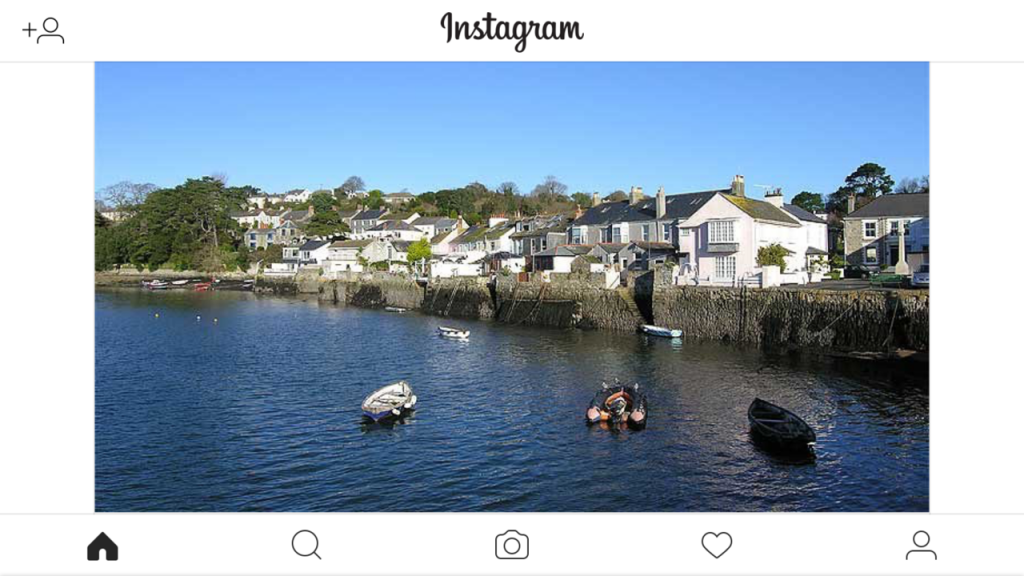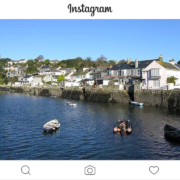 Social media is one of the best ways for holiday cottages to promote themselves and build relationships with potential guests. Most owners have a Facebook page and maybe a Twitter account too. How about combining Instagram and holiday cottage marketing?
Social media is one of the best ways for holiday cottages to promote themselves and build relationships with potential guests. Most owners have a Facebook page and maybe a Twitter account too. How about combining Instagram and holiday cottage marketing?
Hugely popular (there are over 400million monthly users!) and owned by Facebook, the photo-sharing social app is a great way to show off your holiday cottage. 68% of users engage with brands regularly, compared to 32% on Facebook, which means it is the perfect place to get noticed by potential guests, and build relationships with them that turn into bookings.
Okay so we’ve convinced you to download the app, now what? It’s time to post a picture. Before you start snapping away, there are a few things to think about. Here are our top seven tips for posting on Instagram as a holiday homeowner.
-
Use high quality images
This may sound a bit obvious, but having an image that isn’t blurry or pixelated will give your post the solid foundations it needs; Instagram is, after all, a platform for sharing images! If you’ve had professional photography taken, then these can also be easily stored on your phone and shared through the App.
-
Show off the cottage AND the local area
Your holiday cottage is part of a destination, so you’ll need to be using your posts to show the local area as well as your lovely property. Mix up the images you post, combining interior shots with local attractions and views.
Try to make them a similar style, maybe bright and vibrant, or calm and pretty – whatever suits your holiday cottage, its location and your target market! Filters are a great way to make an ok-picture look great, so play around with the settings and ready-made filters to find something that works.
-
Get the caption right
Adding a picture of the sofa in the holiday cottage is fine, but once it captures someone’s attention what would make them take the interaction any further? That’s where your caption comes in.
Keep it short but make sure there’s plenty of personality in there, why not use an emoji or two? You should also use a Call To Action (CTA); this could be a simple line such as “find out more by clicking the link in our bio”, or a question that encourages interaction.
-
Use hashtags, and use them properly
Hashtags, put simply, are used to create connections; they’re labels that allow people searching for a specific topic to find your post. For example, if you are a holiday cottage in Devon you might add “#Devon” to your post. If someone were searching for #Devon, they would then see your post in their search results.
To avoid using excessive amounts of hashtags (which looks very spammy!), think about what people would realistically be searching for. For a post of your Devon cottage living room using #sofa #livingroom #cushion won’t get you very far, instead try #Devon #holidayhome.
There’s some good news here; if you’re not sure which hashtag to use, Instagram shows you the volume of people using the hashtag as you begin to type it, providing you with valuable information and helping you to reach as many people as possible.
-
Try a video
Video is becoming increasingly popular on Instagram. With the recent introduction of live videos and extended post times, it’s a great option for getting attention. Boomerang, an app that captures a short video and repeats it, is also becoming more and more popular on Instagram, so make sure you give it a go with those coastal waves or walks in the countryside.
-
Interact
Instagram is a social media platform, so get social! Like and reply to comments, follow people back, and even share their photos. Although only if it relates to your holiday cottage or area. Remember that the overall promotion of the destination is a key to everyone’s success. Conversation is key! That’s what builds up relationships and encourages people to take the next step and book a trip.
-
Post regularly
A little like Twitter, with so many users posting your images can be lost if you’re not a regular. Ideally, you should be posting twice a day (don’t panic that’s two minutes’ tops!). To reach those who are looking for a holiday, make sure you post at the right time. Consider when they’re likely to be on their phone and Instagram. For example Sunday evenings, as well as lunch time and after work.
Boshers offer specialist holiday home insurance to owners across the UK. Require a quote for your holiday apartment, cottage or complex? Please give us a call on 01237 429444.



 Autumn signals the end of the busy
Autumn signals the end of the busy 


 So that’s it, the temperatures are beginning to fall, the school holidays are a distant memory and those visitor numbers have subsided. It’s time to take a deep breath and begin to prepare for next year. Even if your website has proven to be a real winner this summer, competition is fierce and there are plenty of things you can be doing to make sure next year exceeds your expectations.
So that’s it, the temperatures are beginning to fall, the school holidays are a distant memory and those visitor numbers have subsided. It’s time to take a deep breath and begin to prepare for next year. Even if your website has proven to be a real winner this summer, competition is fierce and there are plenty of things you can be doing to make sure next year exceeds your expectations.
 With more than 30 million registered users in the United Kingdom there’s little doubt that potential guests for your holiday home are on
With more than 30 million registered users in the United Kingdom there’s little doubt that potential guests for your holiday home are on 
 The online world never stands still; here’s our top ten digital trends and tips to increase holiday let bookings to help your holiday home business stay ahead of the game in 2015.
The online world never stands still; here’s our top ten digital trends and tips to increase holiday let bookings to help your holiday home business stay ahead of the game in 2015.